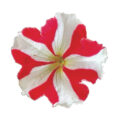Anna N. Seale, Piers E. F. Daubeney, A. G. Magee, Michael L. Rigby
Royal Brompton Hospital.
United Kingdom
Heart
Heart 2006; 92: 815-820
DOI: 10.1136/hrt.2005.073973
Abstract
Objective: To determine the safety and effectiveness of cutting balloon angioplasty for pulmonary vein stenosis (PVS).
Design and setting: Retrospective review of case notes and cardiac catheterisation data at the Royal Brompton Hospital.
Main outcome measures: Diameter of pulmonary vein, tricuspid regurgitant jet velocity on echocardiogram, and percutaneous oxygen saturation before and after cutting balloon angioplasty.
Results: Three patients had congenital PVS and three had PVS associated with total anomalous pulmonary venous drainage. A total of 27 PVSs were treated during 12 catheterisation procedures. Median patient age at the time of procedure was 12.5 months (range 1.5-36 months) and weight was 7.1 kg (range 2.8-11.1 kg). Minimum pulmonary vein diameter increased significantly on angiography after cutting balloon angioplasty, from mean (SD) 2.3 (0.7) mm to 4.2 (1.9) mm, mean of differences 1.9 mm (95% confidence interval (CI) 0.9 to 2.9 mm, p = 0.0013). Mean (SD) oxygen saturation rose from 79.6 (12.9)% to 83.9 (9.0)%, mean of differences 4.3% (95% CI 0.7% to 8.0%, p = 0.0238). All children’s symptoms improved subjectively. Tricuspid regurgitant jet velocity did not change significantly. The longest time interval before repeat intervention was six months. There were no acute deaths; one patient had a small pulmonary haemorrhage and developed a small aneurysm adjacent to the site of angioplasty.
Conclusion: Cutting balloon angioplasty is safe in the palliation of PVS in children. It gives some acute relief but often needs to be repeated, as improvement is rarely sustained.
Category
Stenosis or Obstruction of Normal Pulmonary Venous Connections
Stenosis or Obstruction of Pulmonary Veins Following Surgical Repair of Anomalous Pulmonary Venous Connections
Catheter-mediated Interventions: Efficacy or Lack of Efficacy
Catheter-mediated Interventions: Adverse Effects or Lack of Adverse Effects
Year of Publication: 2006
Age Focus: Pediatric
Article Type: Case Reports or Retrospective Observations in Small Groups of Patients (≤10 patients)
Article Access: Free PDF File or Full Text Article Available Through PubMed or DOI: Yes
